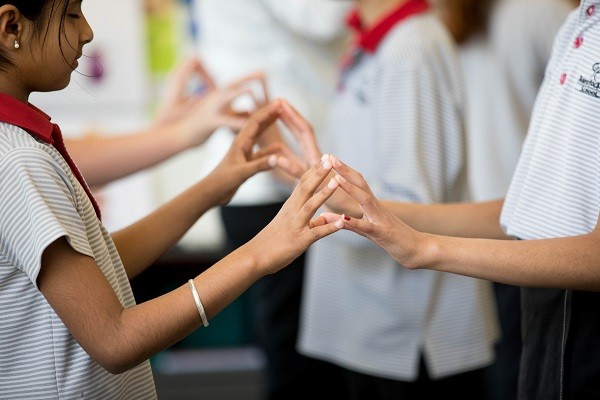Over the last several decades, the evidence for the benefits of mindfulness programmes for young people (and adults) has continued to grow. Studies all over the world show that mindfulness training is effective in boosting cognitive performance and building resilience.
Two promising mindfulness programmes developed in New Zealand are ‘Pause, Breathe, Smile’ run by the Mindfulness Education Group, and The Kindness Institute’s intensive ATAWHAI programme.
Pause Breathe Smile
Pause, Breathe, Smile is a curriculum-aligned ‘mindfulness in schools’ programme. It’s informed by the holistic model of hauora – Te Whare Tapa Whā and supported by the Mental Health Foundation.
The programme is running in over 350 schools nationally, and research highlights the great results achieved for both children and teachers.
Teachers implementing the programme say they are noticing significant behaviour change, and an increased understanding, and ability and willingness to talk about, their feelings.
“Sometimes my brain is like a snow globe when you shake it up. It’s stormy and wild and I can’t see things properly. Mindfulness helps me to calm down so I can see all the different bits of snowflakes and understand what’s happening in my mind,” said one young participant.
Evaluations of Pause, Breathe, Smile show:
- increased calm
- increased focus and attention
- enhanced self-awareness and conflict-resolution skills
- increased pro-social behaviour
- reductions in teacher stress
- statistically significant increases in emotional and general wellbeing
Hear teachers and children talk about the difference 'Pause, Breathe, Smile' is making
Find out more about the Pause, Breathe, Smile programme, and access free resources (for both at home and in the classroom), including Te Reo Māori resources.
ATAWHAI
ATAWHAI is a kaupapa-driven mindfulness programme that aims to bring transformational change to marginalised young people most in need. This includes rangatahi Māori, young Pacific People, young women and young people from the Rainbow Community - those with low confidence, but lots of potential. The programme involves an intensive week-long workshop, and ongoing holistic support, wananga and mentoring for 12-24 months.
Based on Te Whare Tapa Wha framework, ATAWHAI is designed by rangatahi, for rangatahi. They learn how to regulate their emotions, deal with conflict, improve their ability to forgive, and build their motivation, decision-making and relationship skills.
A key part of the programme’s kaupapa is that the rangatahi are also supported to pass on their new skills to whānau and friends. Stepping into teaching and mentoring roles helps young participants to build self-efficacy, respect and support from their peers, and enables the benefits to ripple beyond the programme.
See the programme in action, and hear participants and mentors talk about the difference it's making
An evaluation of the programme show that rangatahi experience:
- increased ability to regulate strong emotions such as anger, anxiety and stress
- increased calm, communication, empathy and forgiveness of self and others
- increased sense of belonging and participation in their communities, including as leaders and teachers
- stronger sense of identity and cultural connection
- increased self-worth, self-efficacy and leadership capabilities
- improvement in holistic well-being
The Kindness Institute has supported over 700 young people and also delivered mindfulness-based teacher trainings, for education and health professionals working with young people
More mindfulness activities
Teachers and parents may also be interested in Sparklers – free resources and activities to promote wellbeing, including mindfulness techniques.
